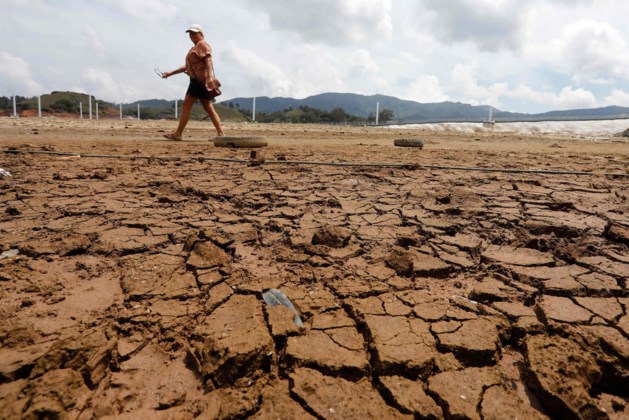© AFP
Ocean temperatures are reaching record highs, sea levels are rising, glaciers are retreating faster and faster every year,… The past decade has been the warmest on record. The United Nations warns that the planet is on the brink of the abyss.
Source: BELGA
Today at 3:19 PM
A new report from the World Meteorological Organization (WMO) talks about “shattered records” in greenhouse gas levels, surface temperatures, ocean heat and acidification, sea level rise, the size of the Antarctic pack ice and the retreat of glaciers.
The UN agency’s report confirms that 2023 was the hottest year on record, with an average global surface temperature of 1.45°C above the pre-industrial reference level.
“The planet is on the brink of collapse as fossil fuel pollution causes unprecedented climate chaos,” warns UN Secretary-General Antonio Guterres.
“There is still time to throw a lifeline to people and the planet,” he said, “but action must be taken now. Every fraction of a degree of global warming impacts the future of life on Earth,” Guterres warned. (Read more below the photo)
© AFP
Heat waves, floods, droughts, forest fires and the rapid intensification of tropical cyclones are sowing misery and chaos, disrupting the daily lives of millions of people and causing economic losses of several billion dollars, the WMO warns.
The period 2014-2023 is the warmest decade on record, exceeding the 1850-1900 average by 1.20°C.
The long-term increase in global temperatures is due to the increase in the concentration of greenhouse gases in the atmosphere, which reached record highs in 2022. The arrival of the El Niño weather phenomenon in mid-2023 has also contributed to the rapid temperature rise, according to the WMO.
According to the WMO, there is a glimmer of hope: the production capacity for renewable energy has increased by almost 50 percent in 2023 compared to 2022. That is the highest percentage in the past two decades.
